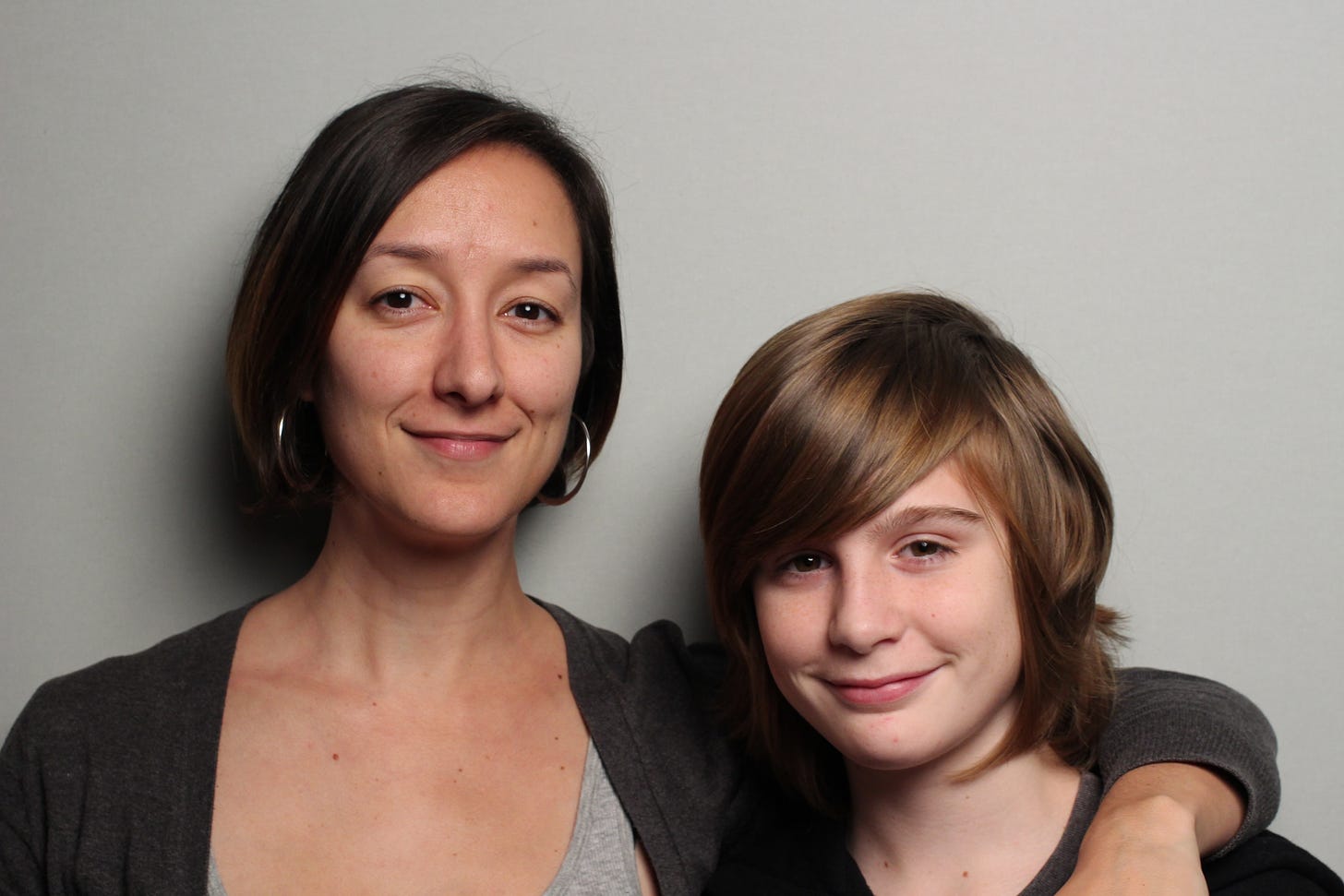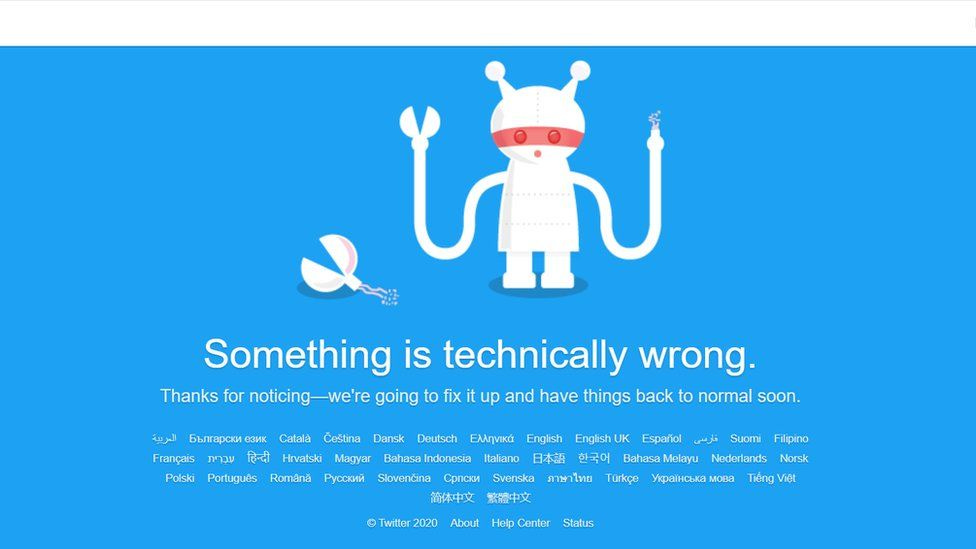My bratty sister-in-law helped me understand why CNN failed
Yes, we are a divided country, but we're obsessed with the wrong division.
As I write this, my sister-in-law is behind me. Let’s call her Q, which will amuse her. She’s sitting on our big, purple couch, writing something just for herself, and I’m struck by her stillness. She is perfectly quiet, which as anyone related to her can tell you is unusual. Invariably, S describes her younger sister as a “controlled nuclear detonation.” I disagree. Q is rarely controlled. Her soliloquies bend in rising symphonies of enthusiasm and wit. So caught up do I get in the show that when she asks me a question I have to warm up quickly before using my voice. I forget that I’m playing, too.
Almost everyone who knows Q will recognize her in that description, but there is a version of her that is for me alone and vice versa. We are both in unfamiliar territory. I will be the only brother-in-law she will ever have. She is my wife’s only sibling, and I did not grow up with a sister.
She told me this morning that because she travels a lot for work and has lived in many cities and countries, she’s become aware of all of her different personae — boss, girlfriend, performer, goofball, artist, friend. She tries to hold onto what she thinks of as indelibly Q, but when she’s around her S she becomes a younger sister, brattier, more mischievous. This is a long way round to say that Q brings a lot of Little Sister energy when she comes to visit, and I get very big brother-in-law. This is the picture she texted me when I asked if she’d landed.
Because my experience with her is siblings-in-law, I rarely get to see her professional, analytical side, but when I came home from work yesterday, still in my own work headspace, she was dealing with a work thing. Q, you see, works for StoryCorps, a non-profit that is trying to “create a more just and compassionate world” by allowing two people to empathize with each other through recorded conversations.
It works like this: Two people go into a recording studio, and a StoryCorps person facilitates the conversation. That’s pretty much it, but it can get magical.
Oooh! I have a great example. Several years ago S and I went to Atlanta with the boys to spend Thanksgiving with her family. Q was working for StoryCorps there at the time, so she invited us to record a conversation. The hitch was that only two of us could do it. S and H2, our younger son, did it.
Before this conversation, I would have called him my son because he was 4-1/2 when S came into our lives, and she has always been intentionally respectful of the primacy of their mother. She’s a stepmom. She read books on step-motherhood. She takes her role seriously, and that means knowing what it is and isn’t. “They already got a mom,” she’s said a million times.
What would you ask if you were sitting in a recording studio with your 13-year-old stepson? He’s looking at you with his big, brown eyes, freckles on his pale cheeks. His mouth is relaxed, sort of smiling and not showing any signs of nerves or guardedness. You know this kid is emotionally available, and he trusts you, which is when you realize, Oh crap. This is not a small talk situation. You really have to show up for this conversation. Where do you start?
S began by thanking him for agreeing to the conversation and then jumped right into it. “It’s really exciting for me to be having this conversation with you because you and I have been part of each other’s lives now for many years, and this isn't really a conversation that we ever had,” she began. “And so I guess the question that I would really like to ask you is what has your experience been having two new parents in your life who are step parents? What has your experience been? Like, do you enjoy it? How has it been difficult? How has it been complicated? I’m just looking forward to hearing your thoughts.”
How do you imagine a 13-year-old boy would respond to that?
“Well, since I was pretty young when you came into my life, I don't really have much to say about, I guess, you coming into my life, but I'm glad you did,” he said in his then-prepubescent voice before lowering the boom. “And I love you just as much as my biological parents. And, um, I guess with how young I was and having [H1], my brother, with me at almost the same age, it really just felt like having a normal family. It didn't feel like I was going through something that was really tough or something that was putting a lot of trouble into my life. You just felt like a normal, new person that was around a lot. And it was pretty cool, I guess.”
“So it’s been OK so far?”
“Mm-hm.”
“Man, that makes me feel really really good.”
“Mm-hm.”
She said later it was all she could do not to bawl right then. Imagine holding yourself at a remove from a four-year-old boy so as not to encroach on his mother’s territory. Imagine thinking you were less-than, only to have him tell you that he loved you just as much. They ended up talking about lots of things — Star Trek, Mars, me — but that first exchange changed her understanding of her role in his life. Her persona as stepmother got colored in. And since then S and I have called them our sons. They are not ours alone, of course, but she includes herself in their story now.
See? Magic.
Fast forward eight and a half years to yesterday, when Q told me about a initiative StoryCorps began rolling out in 2019 — One Small Step. It sounds similar to the StoryCorps conversation, but One Small Step recruits people on opposite sides of the political spectrum to have a 50-minute-long conversation.
At first, it sounded like the fallacy of the Enlightenment that I hear too often these days, that the cure for what ails our divided country is simply to Come Together and have Courageous Conversations to Bridge the Divide. Besides, we already have a long tradition in America of people with different political views coming together for conversation. It’s called Thanksgiving, and it’s very stressful, but the food is nice.
Turns out, One Small Step doesn’t work as well if you only access political personae. Q said she has seen its greatest success when pairing people through what they have in common, such as living in the same community and having similar life experiences such as a recent divorce. And for obvious reasons, they don’t pair people from marginalized communities with those who hate them. A Black man would never be paired with a klansman.
In other words, StoryCorps has to take extraordinary care to avoid both-sidesing fundamental disagreements because they know the common ground they want their participants to find is in what they have in common and not in the center of their political divide.
Thinking that hearing out both sides will lead to, I dunno, good vibes? is why I think Chris Licht failed to turn CNN into a centrist news outlet. There is no center between the acceleration of global warming and those who claim it’s just a phase Earth is going through. If one side is that cops systematically use unnecessary violence with Black people, and the other side thinks cops are great and people should treat them like heroes, the middle ground offers only compromise of the former’s safety for the latter’s comfort.
The fantasy that the middle ground offers truth is particularly alluring for mainstream journalists who have been conditioned since the 1960’s to pre-empt accusations that they are the liberal media. But their job isn’t to give equal time to both sides. It’s to tell us what the heck is going on, and if news outlets treat our divisions as one of opinion and decorum rather than of truth and the right to live peacefully in this country, then we won’t understand what the heck is going on. We’ll just be sick of everyone fighting, which, according to the latest polls, we are.
In a country where the average voter reads at a 7th-grade level, our most dangerous division isn’t between Democrats and Republicans but between truth and lies. For example, we are not and have not been in a recession, yet the media is constantly hyping stories about inflation through the lens of how this is bad for Joe Biden. As a consequence, most Americans blame Joe Biden for a recession that doesn’t exist. What if, now hear me out, they didn’t treat how much things cost as a fundamentally political story? What if the news media stopped coloring in my persona as a partisan and instead invested airtime to building me up as a citizen?
We do need to have conversations in this country if we are to survive as one. But these conversations cannot treat both sides equally or posit that an extreme position is bad just because it’s on the extreme. In other words, we have to stop looking at ourselves as primarily political personae.
Instead, what if we just asked what is true?
Jason Stanford is the co-author of NYT-best selling Forget the Alamo: The Rise and Fall of an American Myth. His bylines have appeared in the Washington Post, Time, and Texas Monthly, among others. Email him at jason31170@gmail.com.
Further Reading
We set up a merch table in the back where you can get T-shirts, coffee mugs, and even tote bags now. Show the world that you’re part of The Experiment.
We’ve also got a tip jar, and I promise to waste every cent you give me on having fun, because writing this newsletter for you is how I have fun.
Buy the book Texas Lt. Gov. Dan Patrick banned from the Bullock Texas History Museum: Forget the Alamo: The Rise and Fall of the American Myth by Bryan Burrough, Chris Tomlinson, and myself is out from Penguin Random House. The New York Times bestseller is 44% off and the same price as a paperback now!










The Alamo book is $4.99 today on kindle
Your introductory story about your spouse S and son H2 having a StoryCorps conversation is beautiful. I’m technically a stepmom and had a moment like S, when I learned my stepson thought of me as simply one of his moms. I also started calling him my son after that. Our children know love when they get it.